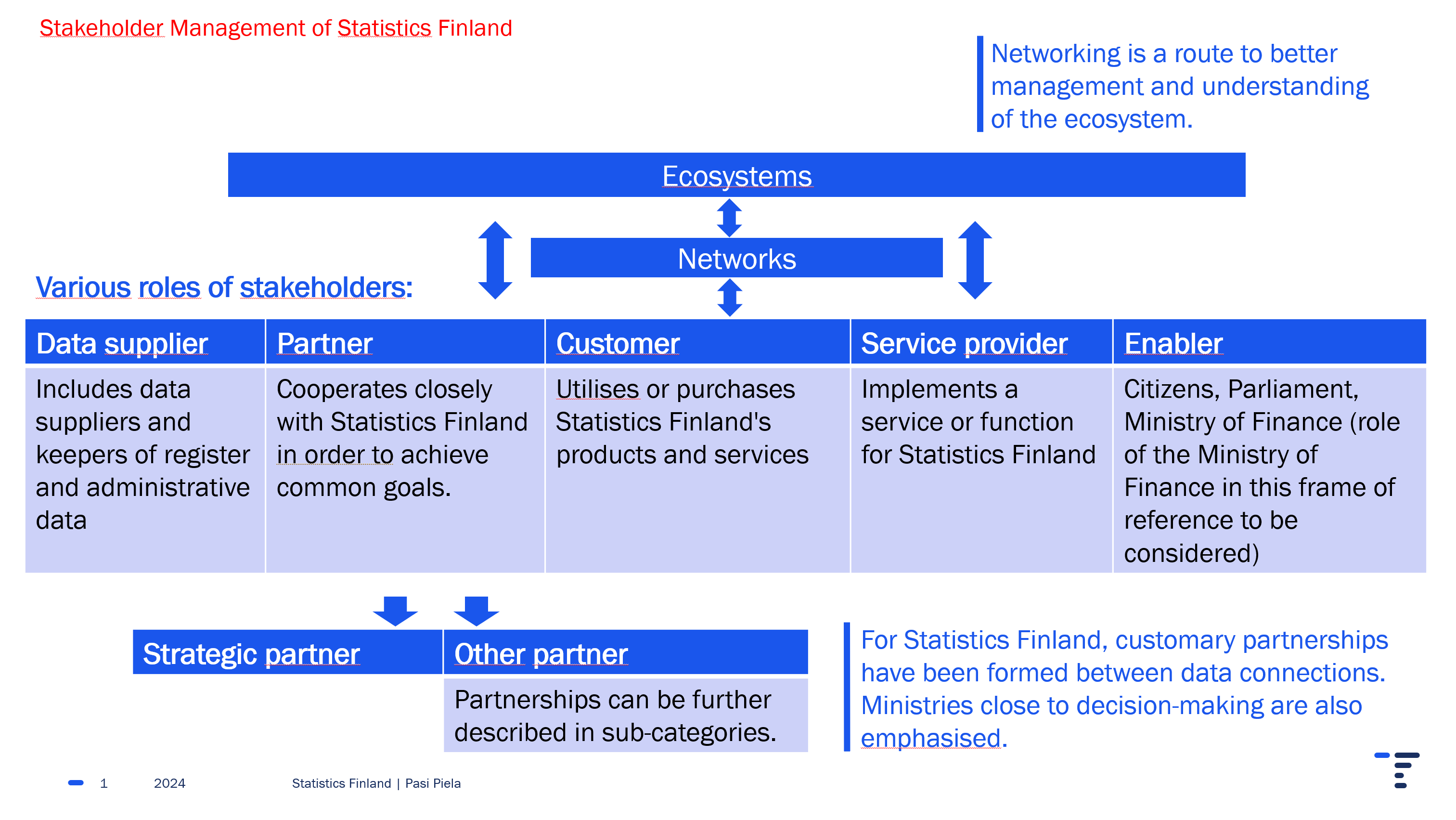Data ecosystems in official statistics: orientation and examples from Statistics Finland
Conference
65th ISI World Statistics Congress
Format: CPS Abstract - WSC 2025
Keywords: cooperation, ecosystems, information
Session: CPS 67 - Data Quality and Management in Official Statistics
Tuesday 7 October 4 p.m. - 5 p.m. (Europe/Amsterdam)
Abstract
A data ecosystem (or an information ecosystem) is a complex phenomenon. It is a combination of co-dependent networks and actors that contribute to the generation, management, analysis, and utilization of data. Activities within an ecosystem are guided by a common goal, which actors would not be able to achieve alone.
The data governance and data stewardship activities, as described by the UNECE Task Force on Data stewardship, take place in a data ecosystem. These relate to managing the interactions of four main categories of actors in the data: data generators, data services, data business users and end customers.
The data ecosystem orientation in the organization requires moving from bilateral co-operation to shared goals: targeted working together utilizing the expertise of different organizations. The presentation describes the most relevant surrounding information ecosystems on which Statistics Finland is concentrating and defining its role as an actor with its capacities. A leading role is only guaranteed particularly in the national official statistics data ecosystem.
How to add value to an ecosystem? Capacities of Statistics Finland to an ecosystem are the following:
1) Ability and resources to gather, process and combine, large datasets efficiently.
2) Knowledge on society's information resources and understanding how they can be utilized.
3) Expertise on data storage and data processing.
4) Expertise on production processes of data, metadata, quality, data security, etc.
Relevant information ecosystems have been divided into four groups:
1) Strategically important data ecosystems:
relevant framework ecosystems for strategic leadership: ecosystems and networks of the central government in which director level participation is important.
2) Data ecosystems important for statistics: operational ecosystems in which Statistics Finland has a central, coordinating role or other wise an important role.
3) Activity based data ecosystems: ecosystems that combine several different phenomenon areas (a crucial example being Geospatial Information Ecosystem).
4) Other substance-based data ecosystems: ecosystems that cover one or several areas of statistics.
Thus, Statistics Finland's Information Ecosystem Policy is a kind of multi-ecosystem approach in which it has recognized varying roles, and these roles particularly are objects of attention.
Figures/Tables
2024_StakeholderManagement_StatFi

